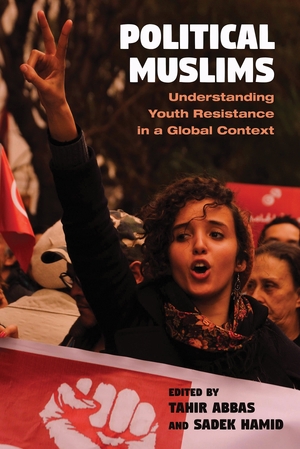"In this timely and well-crafted volume Mahdavi has pulled out the top gun scholars and critical thinkers collectively concerned with the fate of democratic aspirations in Arab and Muslim world to reflect back at the revolutionary uprisings of 2010s from the vantage point of 2020s. The prose and politics of this very volume are the clearest indication that Arab revolutions have spectacularly succeeded to alter our critical consciousness of the world."—Hamid Dabashi, author of Arab Spring: The End of Postcolonialism
"Middle East exceptionalism suggests this region cannot be analyzed in terms of general socio-economic and political processes due to an unchanging cultural essence rooted in Islamic traditions. This book demolishes this idea. Historically grounded and comprehensive in its scope, it is essential reading on the topic."—Nader Hashemi, University of Denver
"The Myth of Middle East Exceptionalism takes stock of the unfinished social movements more than a decade after their birth in the Middle East. A must-read."—Fawaz A. Gerges, professor of International Relations, London School of Economics
"A timely and invaluable contribution to the understanding of the post-Islamism, modern Islamic political thought, and recent social and civil rights movements in the MENA region."—Elhum Haghighat, author of Demography and Democracy: Transitions in the Middle East and North Africa
"This fascinating volume speaks to a burgeoning literature that has challenged essentialist explanations of politics in the Middle East and the Islamic World while highlighting the historical, cultural, and political features of the regions."—Ammar Shamaileh, Doha Institute for Graduate Studies
Description
More than a decade after the birth of contemporary social movements in the Middle East and North Africa scholars are asking what these movements have achieved and how we should evaluate their lasting legacies. The quiet encroachments of MENA counterrevolutionary forces in the post-Arab Spring era have contributed to the revival of an outdated Orientalist discourse of Middle East exceptionalism, implying that the region’s culture is exceptionally immune to democratic movements, values, and institutions. This volume, inspired by critical post-colonial/decolonial studies, and interdisciplinary perspectives of social movement theories, gender studies, Islamic studies, and critical race theory, challenges and demystifies the myth of “MENA Exceptionalism”.
Composted of three sections, the book first places MENA in the larger global context and sheds light on the impact of geopolitics on the current crises, showing how a postcolonial critique better explains the crisis of democratic social movements and the resilience of authoritarianism. The second section focuses on the unfinished projects of contemporary MENA social movements and their quest for freedom, social justice, and human dignity. Contributors examine specific cases of post-Islamist movements, the Arab youth, student, and other popular non-violent movements.
In the final section, the book problematizes the exceptionalist idea of gender passivity and women’s exclusion, which reduces the reality of gender injustice to some eternal and essentialized Muslim/MENA mindset. Contributors address this theory by placing gender as an independent category of thought and action, demonstrating the quest for gender justice movements in MENA, and providing contexts to the cases of gender injustice to challenge simplistic, ahistorical and culturalist assumptions.
About the Author
Mojtaba Mahdavi is professor of political science and ECMC Chair of Islamic Studies at the University of Alberta. He is the editor of Rethinking China, the Middle East, and Asia in "Multiplex World" and Towards the Dignity of Difference: Neither End of History nor Clash of Civilizations.
mojtabamahdavi.com
Related Interest
Series: Contemporary Issues in the Middle East
7 x 10, 360 pages, 4 color, 1 black and white illustrations
February 2023




